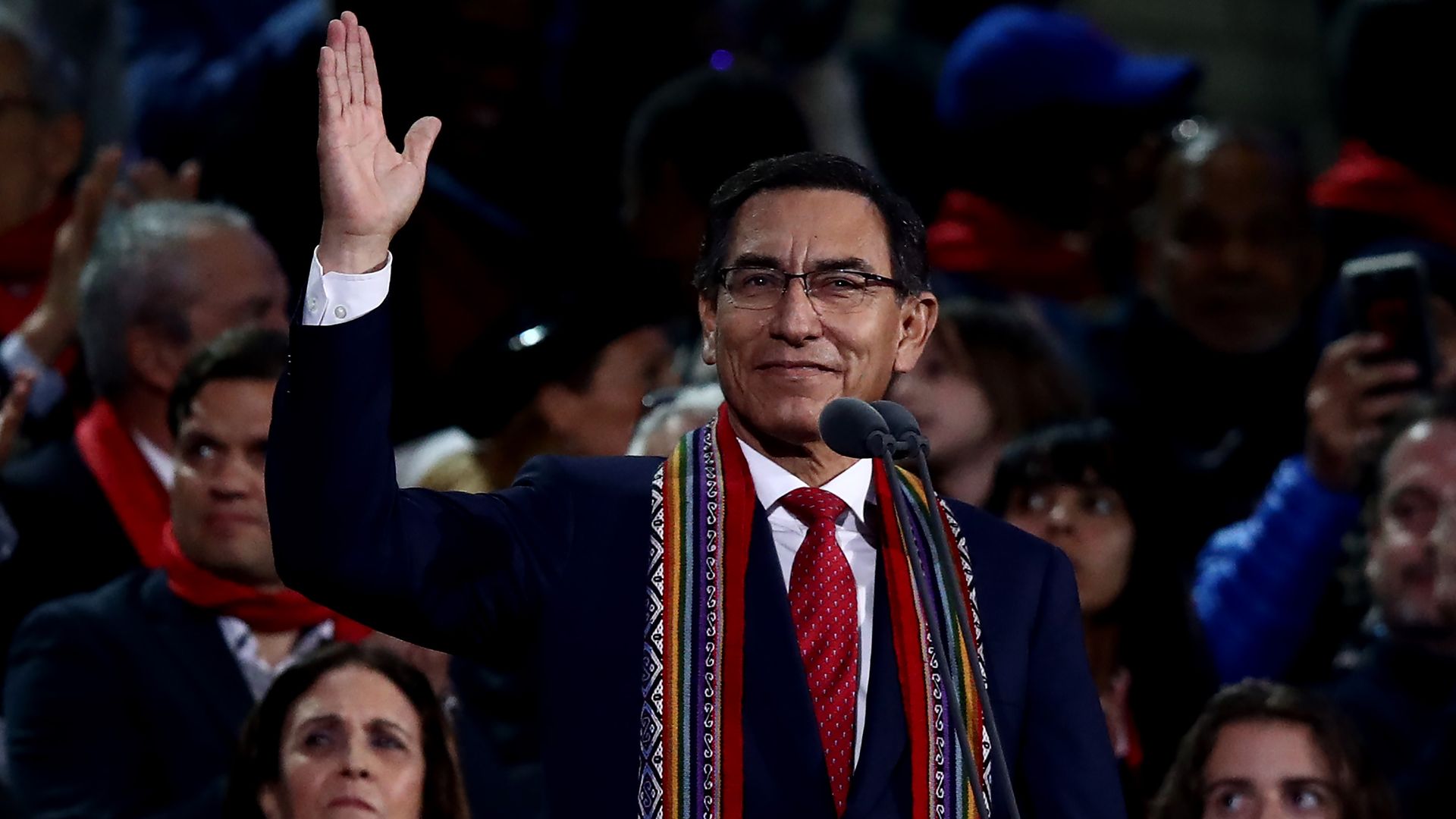Presidential standoff jeopardizes Peru's prized political stability
Add Axios as your preferred source to
see more of our stories on Google.

Martín Vizcarra. Photo: Ezra Shaw/Getty Images
The escalating standoff between Peru's president, Martín Vizcarra, and Congress is putting the country's weak political institutions to a once-in-a-generation test.
Why it matters: After the past week's rapid-fire measures and countermeasures, Peru finds itself in new and uncertain political territory — bringing the specter of instability to what has been one of the steadiest economies in Latin America.
Driving the news: Vizcarra's tense relations with Congress came to a head when he moved to dissolve the legislature and call for new elections after having failed to gain a vote of confidence for his Cabinet.
- Congressional leaders condemned the move, voted to suspend Vizcarra for 12 months and nominated his vice president, Mercedes Aráoz, as the acting head of state.
- Aráoz promptly accepted the controversial promotion, but later resigned from the government completely. The heads of Peru's armed forces and national police have pledged to continue backing Vizcarra.
Background: Vizcarra has pursued a dual strategy since taking office in March 2018, following the resignation of his predecessor, Pedro Pablo Kuczynski, who was under threat of impeachment.
- On the one hand, Vizcarra has positioned himself as an anti-corruption avatar seeking greater transparency and accountability in the wake of several graft scandals that ripped through the country’s political elites like wildfire.
- On the other hand, his tiny congressional faction has left him politically isolated and continually thwarted by the opposition.
Where it stands: Vizcarra is constitutionally eligible to serve out the remainder of the ousted Kuczynski’s term, due to end in 2021, but he has already called for early presidential and parliamentary elections in 2020.
- While his decision to dissolve Congress has proved broadly popular, some have criticized it as echoing a similar 1992 decision by then-President Alberto Fujimori, a controversial figure who has spent the last several years in and out of prison.
What to watch: The Organization of American States has said the ultimate arbiter of the dispute must be Peru’s Constitutional Tribunal. However, the rapid resignation of Aráoz means that Vizcarra’s call for early elections is likely to be recognized as a political reality sooner rather than later.
Daniel P. Erikson is managing director at Blue Star Strategies and a senior fellow at the Penn Biden Center for Diplomacy and Global Engagement.
